
In 2015, Hamilton didn’t just open it detonated.
It arrived like cannon fire on Broadway, rewriting the rules in iambic pentameter and internal rhyme, dressed in 18th-century coats and 21st-century swagger. A decade later, the dust hasn’t settled it’s settled in, woven into the fabric of theatre, education, and culture itself.
And yet, what made Hamilton seismic wasn’t just the score. It was the way it gave history a heartbeat. A melody. A mirror.
So as we mark its 10th anniversary in 2025, let’s trace the legacy of this singular sensation not just in fact, but in feeling.
1. History Got Hip Hop and a Whole New Audience
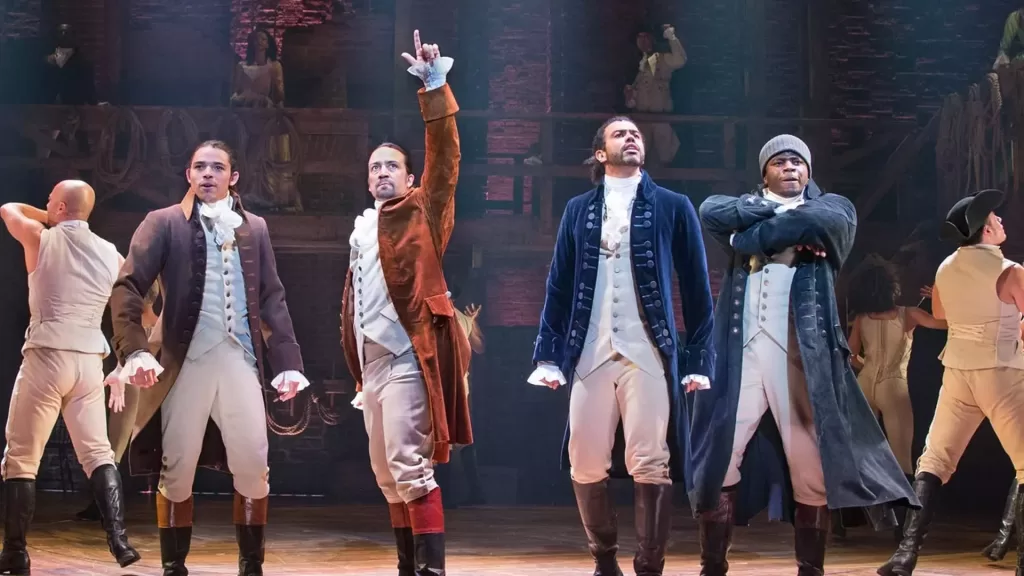
Before Hamilton, musical theatre rarely made room for rap. Hip hop was seen as too contemporary, too gritty, too “other” for Broadway.
Lin-Manuel Miranda changed that.
He took the cadences of Nas and the density of Rakim and spun them into the language of the founding fathers. He made cabinet meetings into rap battles and transformed exposition into mixtapes. But more than novelty, it was a reclamation of narrative, of rhythm, of voice.
Hamilton showed that hip hop wasn’t just relevant to theatre it was revolutionary.
2. The Founding Fathers Were Recast Literally and Symbolically
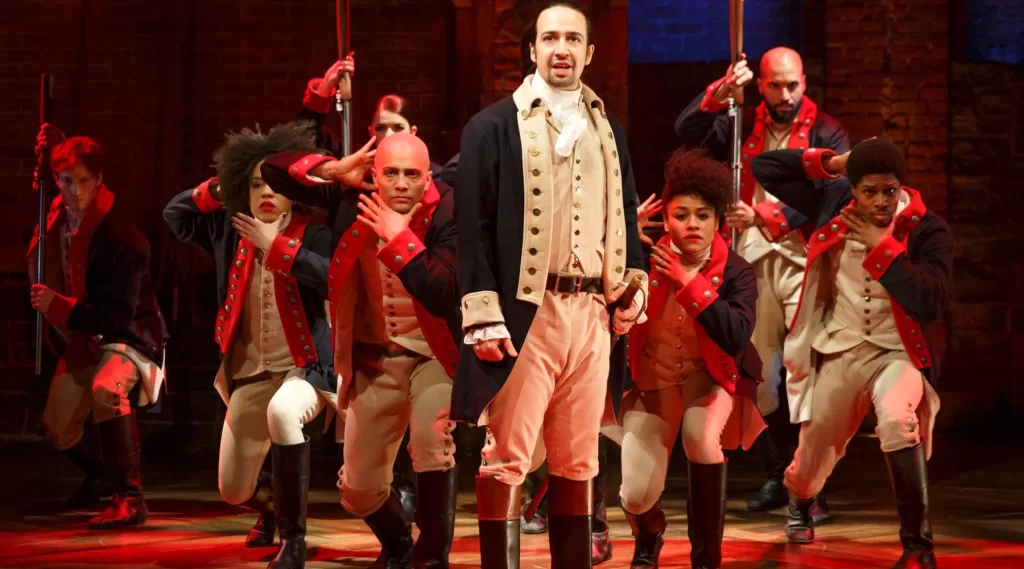
One of Hamilton’s most powerful artistic choices was its casting.
By placing Black and Brown actors in the roles of white historical figures, the show reframed American history not as something distant or exclusive, but something we all inherit and have the right to interrogate, rewrite, and claim.
Miranda once said, “This is a story about America then, told by America now.” And in doing so, Hamilton became a mirror for who we are and who we could be.
3. The Score Went Mainstream (and Stayed There)
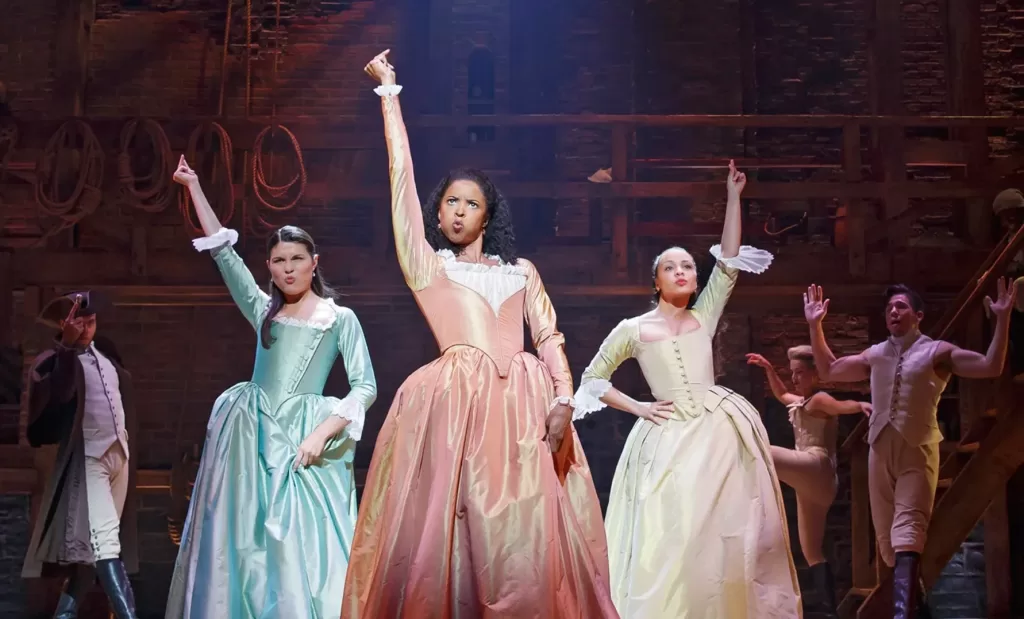
When was the last time a Broadway cast album went platinum?
Hamilton wasn’t just a musical it was a phenomenon. It charted on Billboard. It was streamed like pop music. It was quoted like scripture. Schools taught with it. Artists remixed it. President Obama sang along.
For the first time in decades, musical theatre lived not just on the stage, but in the culture. It moved from playbill to playlist.
And it brought with it a generation of new fans many of whom had never set foot in a theatre before.
4. “I Am Not Throwing Away My Shot” Became a Creative Anthem
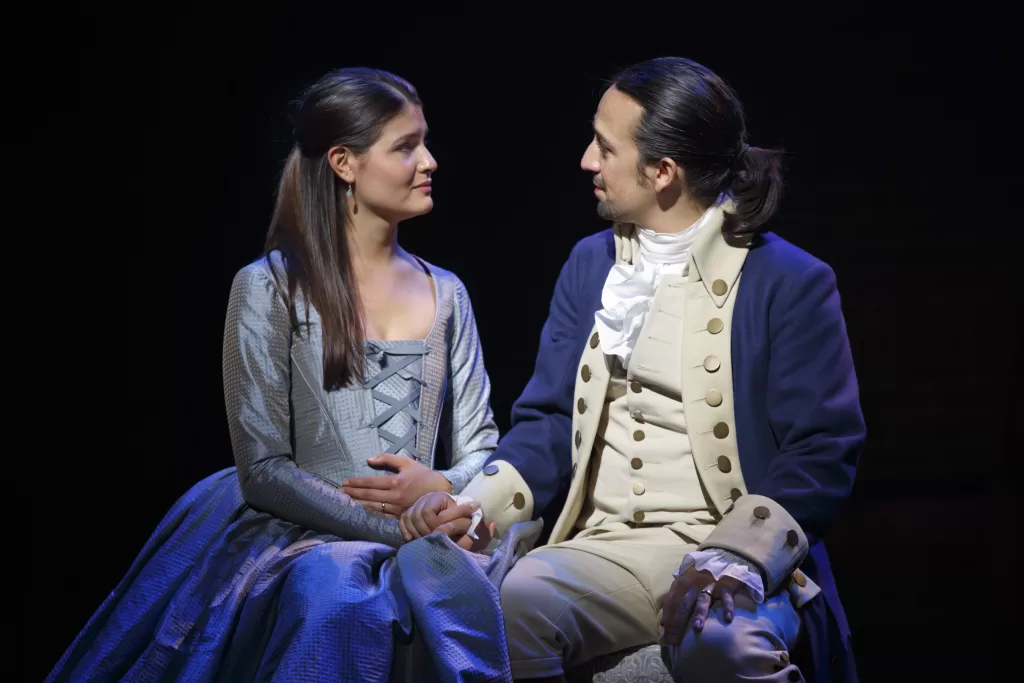
For so many artists myself included Hamilton was a spark.
It reminded us that stories could be told differently. That musical theatre didn’t have to sound like Sondheim or Rodgers & Hammerstein to be legitimate. That our voices however unexpected had a place.
The character of Alexander Hamilton, flawed and fervent, became a symbol of creative ambition. He wrote like he was running out of time, and in doing so, made room for those of us trying to write our way into the world.
5. The Stage Expanded So Did the Storytelling
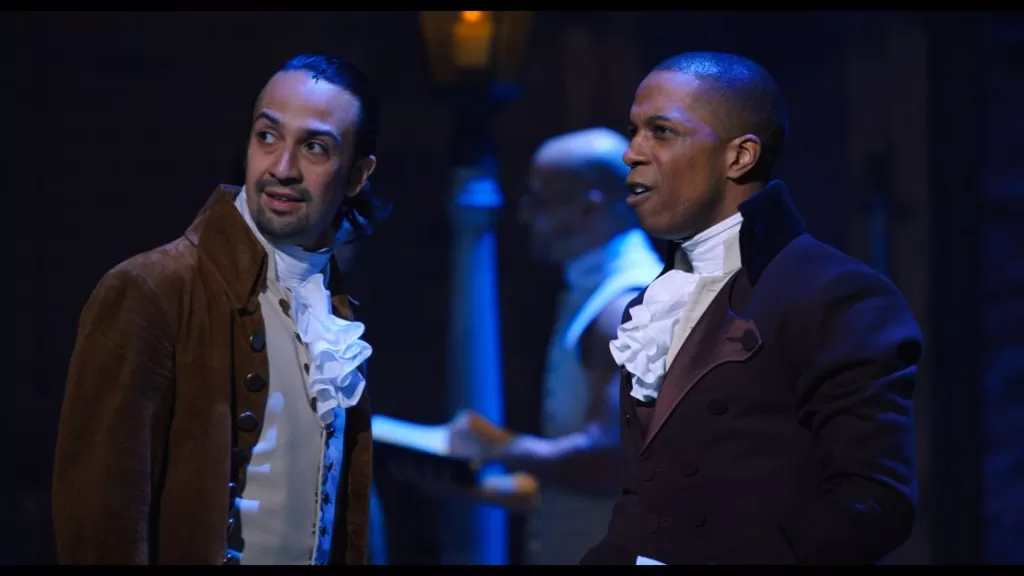
From Broadway to Disney+, Hamilton broke the fourth wall of theatre itself.
Its filmed version brought the magic of the stage to millions who couldn’t afford a ticket. And that mattered. Because for all its praise, Hamilton was still an expensive, often inaccessible experience. The streaming release, especially during the COVID era, democratized access at least for a moment.
And in doing so, it forced the industry to reckon with who gets to experience art, and why that still needs to change.
6. The Dialogue Evolved (and the Criticism, Too)

No legacy is perfect. In the years since its debut, Hamilton has faced critique about historical omissions, idealized portrayals, and the romanticization of problematic figures.
And that, too, is part of its impact.
It opened the door for deeper conversations. It showed that theatre can be beloved and interrogated, praised and held accountable.
It reminded us that revolution isn’t always comfortable but it should always be alive.
10 Years Later, We’re Still in the Room
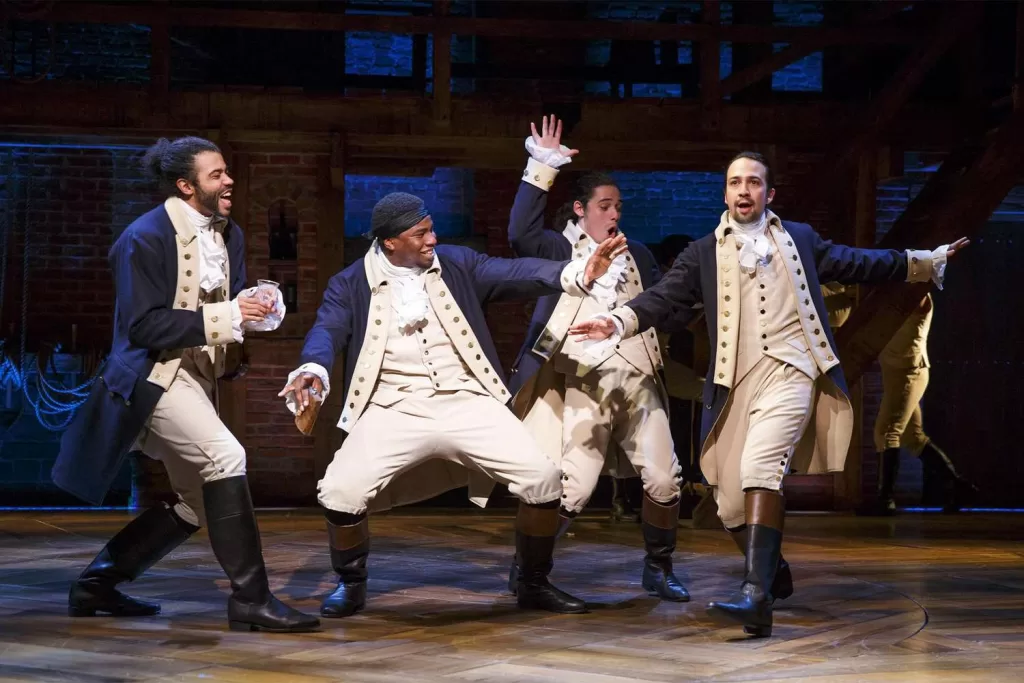
Hamilton didn’t just change Broadway it expanded its borders. It gave permission. It gave language. It gave rhythm to rebellion.
Ten years on, its influence is everywhere in casting calls, in high school classrooms, in the quiet ambition of artists dreaming past limitations.
And for many of us, Hamilton wasn’t just a show we saw.
It was a show that saw us.
Explore our other Musical posts- 50 Years of The Wiz here, My Fair Lady here, and A Chorus Line’s Legacy 50 Years here!
Hamilton changed the face of Broadway when it premiered in 2015. Now, ten years later, its influence is still being felt in musical theatre, pop culture, and creative storytelling. Whether you’re exploring Hamilton‘s cultural impact, how it changed Broadway, or writing about its legacy for school or personal reflection, this post dives into the artistry, ambition, and ongoing conversation surrounding the show.
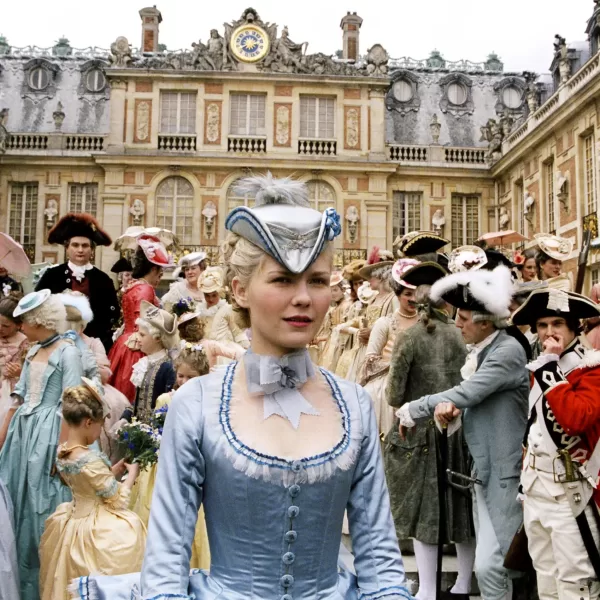
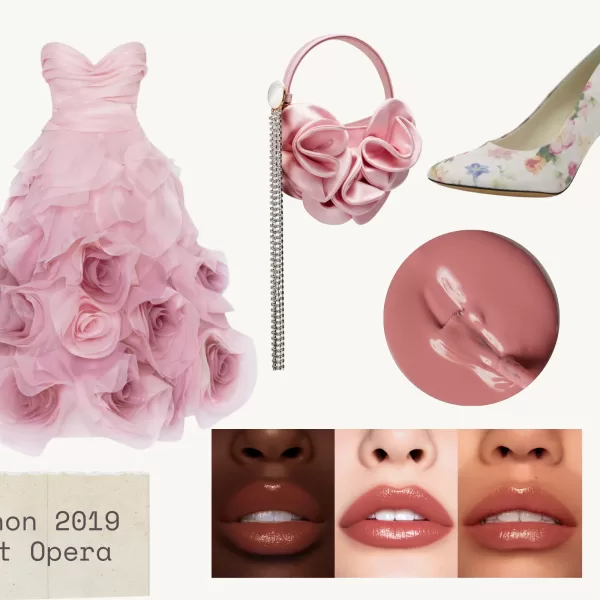
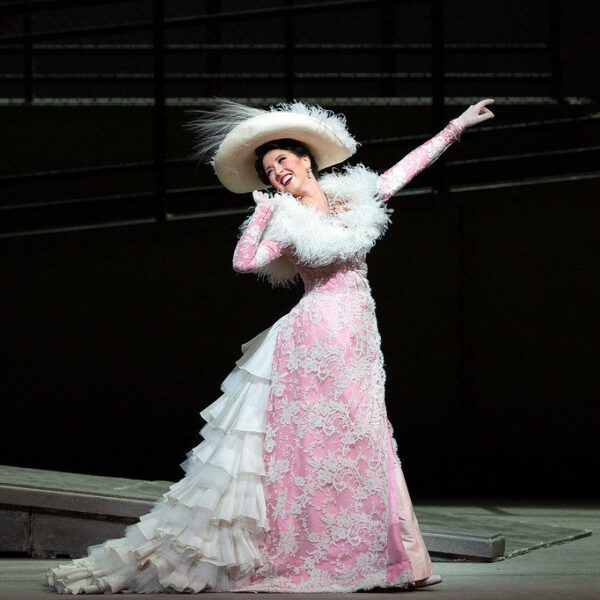
Leave a Reply